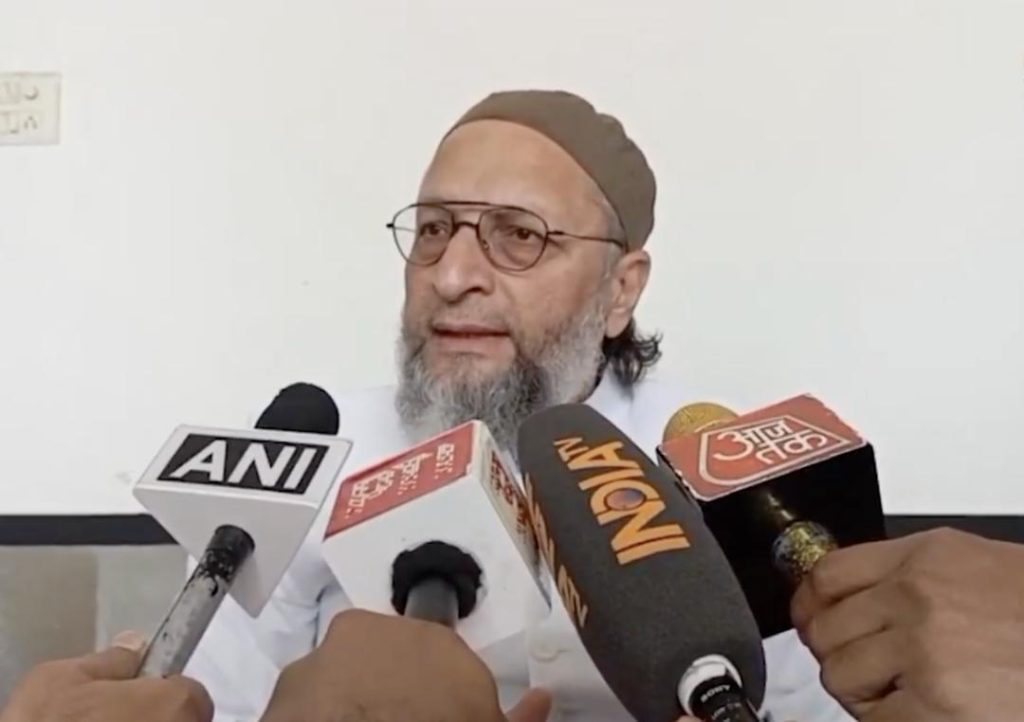
Arrest 4-5 ministers & govt is gone: Owaisi on PM-CM removal Bills
In a scathing attack on the Constitution (130th) Amendment Bill, which proposes to provide for the removal of Prime Ministers, Chief Ministers, and ministers arrested for at least 30 days, AIMIM chief Asaduddin Owaisi has warned that the government is vulnerable to collapse if just four or five ministers are arrested. Speaking on the proposed bill, Owaisi questioned the authority of the President to remove the Prime Minister, calling it an “absurdity”.
The Constitution (130th) Amendment Bill, which is currently being debated in Parliament, seeks to amend Article 352 of the Constitution to provide for the removal of Prime Ministers, Chief Ministers, and ministers who have been arrested for at least 30 days. The bill is part of a larger effort by the government to strengthen its hand in dealing with opposition leaders and to prevent them from being arrested and imprisoned for an extended period.
However, Owaisi has dismissed the proposal as an attempt to undermine the democratic process and to give the President sweeping powers to remove elected leaders. “This proposed bill is saying that the President can remove the Prime Minister. What is this?” he asked in an interview with a leading news channel.
Owaisi’s comments have sparked a heated debate on social media, with many taking to Twitter to express their support for the AIMIM chief’s stance. “Who needs a bill to tell us that the President can remove the PM? It’s a fundamental principle of democracy that the President is not a puppet of the PM,” tweeted a prominent political analyst.
Others, however, have defended the bill, arguing that it is necessary to prevent political instability and to ensure that the government remains stable and functional. “The bill is not about giving the President the power to remove the PM, but about ensuring that the government remains accountable to the people,” tweeted a prominent journalist.
Despite the controversy surrounding the bill, it is likely to be passed by Parliament, given the government’s majority in the Lok Sabha. However, Owaisi’s comments have raised important questions about the nature of democracy and the role of the President in a parliamentary system.
In a parliamentary system, the President is typically a ceremonial figurehead who plays a limited role in the political process. The Prime Minister is the head of government and is responsible for advising the President on matters of policy. However, in recent years, the President’s role has been expanding, with many Presidents taking a more active role in the political process.
The Constitution (130th) Amendment Bill is the latest example of this trend, and Owaisi’s comments have highlighted the dangers of giving the President too much power. “The President is not a king, but a representative of the people,” he said in his interview. “We must not forget that the President is not above the law and must be accountable to the people.”
The bill has also raised questions about the accountability of the Prime Minister and other elected leaders. Under the proposed bill, the President will have the power to remove the Prime Minister and other ministers if they are arrested for at least 30 days. However, this power is not limited to cases of corruption or abuse of power, but can be exercised in any situation where the President deems it necessary.
Owaisi has argued that this power is too broad and could be used to target political opponents. “The President can remove the PM for any reason, not just corruption or abuse of power,” he said. “This is a clear attack on democracy and an attempt to undermine the democratic process.”
In conclusion, the Constitution (130th) Amendment Bill is a controversial proposal that has raised important questions about the nature of democracy and the role of the President in a parliamentary system. While some argue that the bill is necessary to prevent political instability, others see it as an attempt to undermine the democratic process and to give the President too much power.
As the debate continues, it is clear that the bill will have far-reaching implications for Indian politics and democracy. Will the bill be passed, or will it be rejected? Only time will tell. But one thing is certain – the debate is far from over, and the fate of Indian democracy hangs in the balance.






